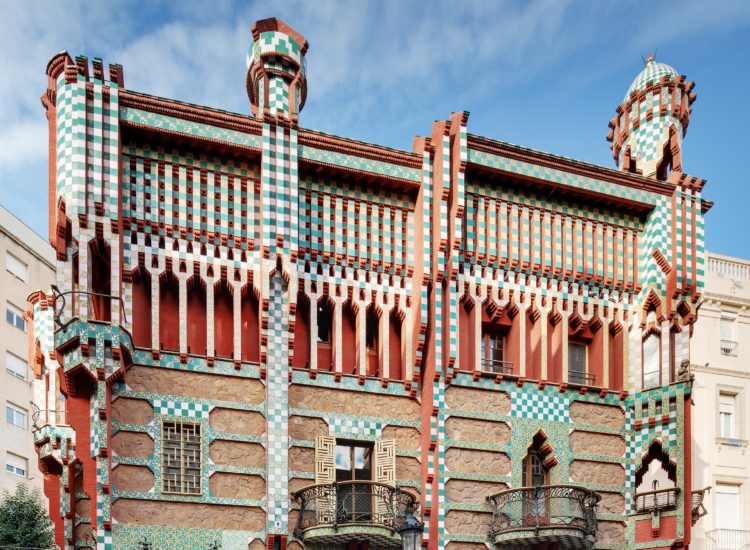After a year’s delay, Antoni Gaudí’s Casa Vicens, a former private home in Barcelona, will open to the public for the first time as a museum this fall. The gorgeously tiled property was the first house the legendary Catalan architect ever built, and is considered by some to be his first masterpiece. Gaudí began working on it in 1883 when he was just 31 years old, and completed it in 1885.
Together with seven other Gaudí buildings in or near Barcelona, including the famously unfinished Sagrada Familia church and Parque Güell, Casa Vicens has been recognized by the United Nations Educational, Scientific and Cultural Organization (UNESCO) as a World Heritage Site since 2005. The UNESCO listing notes that Casa Vicens “has undergone only minor conservation and restoration work.”
“The forms of which Casa Vicens is composed are very different from those we are accustomed to seeing [from Gaudí],” notes the website for the forthcoming museum. An example of Gaudí’s Orientalist period, Casa Vicens’s design is influenced by the architecture of Egypt, Morocco, and India, as well as Spain’s Islamic architecture on the Iberian peninsula.
Constructed for industrialist Manel Vicens, the three-story building was later revamped in 1925 as three separate apartments by Gaudí’s friend, the architect Joan Baptista Serra de Martínez. (He undertook the work with Gaudí’s approval, but removed the original staircase connecting the floors.) For more than a century, it served as a private home for a very lucky family.
The Andorran bank MoraBanc purchased the historic property in 2014, seven years after it first went on the market. Renovations have been underway since April 2015, overseen by architecture studio Martínez Lapeña-Torres Arquitectes S.L.P. and architects José Antonio Martínez Lapeña, Elías Torres, and David García. When the building reopens as a museum, it will include a display on the history of the house.
Stay tuned for a firm opening date and pricing information for visitors.
